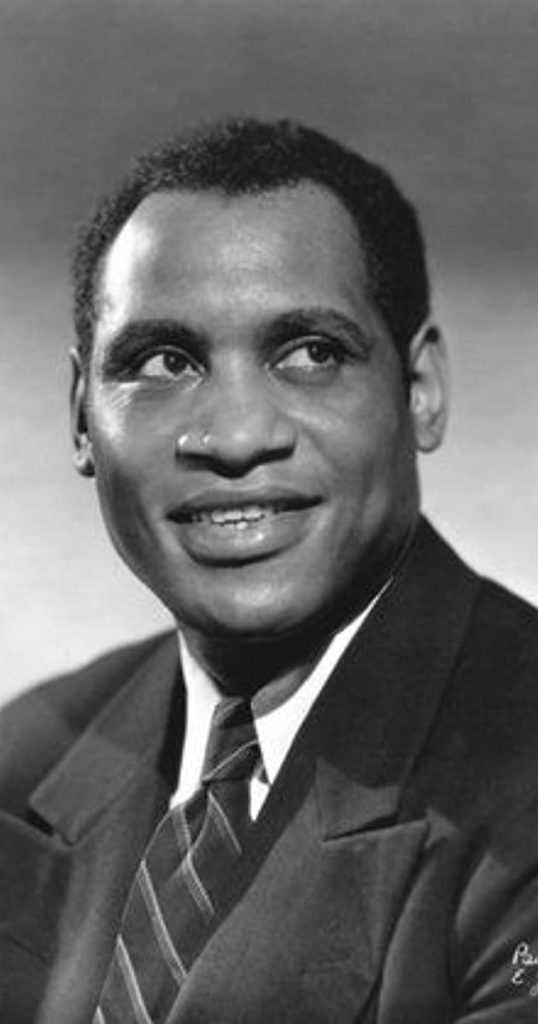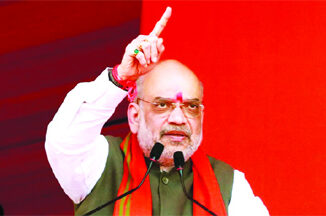“What is history? An echo of the past in the future; a reflex from the
April 8

April 8th – Among Buddhists, celebrated as the birthday of Buddha (563-483 B.C.). An estimated 350 million persons currently profess the Buddhist faith.

April 8, 1952 – President Harry S. Truman seized control of America’s steel mills to prevent a shutdown by strikers. However, on April 29th, the seizure was ruled unconstitutional by a U.S. District Court. Workers immediately began a strike lasting 53 days, ending it when they received a 16-cents per-hour wage increase and additional benefits.
April 8, 1913 – The 17th Amendment to the U.S. Constitution was ratified requiring direct popular election of U.S. senators. Previously, they had been chosen by state legislatures.
April 8, 1990 – Ryan White died at age 18 of complications from AIDS. As a young boy, White, a hemophiliac, contracted the Acquired Immune Deficiency Syndrome from a blood transfusion. At age ten, he was banned from school. He then moved with his mother to Cicero, Indiana, where he was accepted by the students. As his plight was publicized, he gained international celebrity status and helped promote understanding of the dreaded disease.
April 9
April 9, 1865 – After over 500,000 American deaths, the Civil War effectively ended as General Robert E. Lee surrendered to General Ulysses S. Grant in the village of Appomattox Court House. The surrender occurred in the home of Wilmer McLean. Terms of the surrender, written by General Grant, allowed Confederates to keep their horses and return home. Officers were allowed to keep their swords and side arms.
April 9, 1866 – Despite a veto by President Andrew Johnson, the Civil Rights Bill of 1866 was passed by Congress granting blacks the rights and privileges of U.S. citizenship.

Birthday – African American actor and singer Paul Robeson (1898-1976) was born in Princeton, New Jersey. Best known for his performance in The Emperor Jones, he also enjoyed a long run on Broadway in Shakespeare’s Othello. In 1950, amid ongoing anti-Communist hysteria, Robeson was denied a U.S. passport after refusing to sign an affidavit on whether he had ever been a member of the Communist Party.
April 10
April 10, 1942 – During World War II in the Pacific, the Bataan Death March began as American and Filipino prisoners were forced on a six-day march from an airfield on Bataan to a camp near Cabanatuan. Some 76,000 Allied POWs including 12,000 Americans were forced to walk 60 miles under a blazing sun without food or water to the POW camp, resulting in over 5,000 American deaths.
April 10, 1945 – The Nazi concentration camp at Buchenwald was liberated by U.S. troops. Located near Weimar in Germany, Buchenwald was established in July 1937 to hold criminals and was one of the first major concentration camps. It later included Jews and homosexuals and was used as a slave labor center for nearby German companies. Of a total of 238,980 Buchenwald inmates, 56,545 perished. Following its liberation, Supreme Allied Commander, General Dwight D. Eisenhower, and other top U.S. commanders visited the sub-camp at Ohrdruf. U.S. Troops also forced German civilians from nearby towns into the camp to view the carnage.
April 10, 1998 – Politicians in Northern Ireland reached an agreement aimed at ending 30 years of violence which had claimed over 3,400 lives. Under the agreement, Protestants and Catholics in Northern Ireland would govern together in a new 108-member Belfast assembly, thus ending 26 years of ”direct rule” from London.

(Photo H 4 here)
Birthday – Publisher Joseph Pulitzer (1847-1911) was born in Budapest, Hungary. He came to America in 1864 and fought briefly in the Civil War for the Union. He then began a remarkable career in journalism and publishing. His newspapers included the St. Louis Post-Dispatch and the New York World. He also endowed the journalism school at Columbia University and established a fund for the Pulitzer Prizes, awarded annually for excellence in journalism.
April 11
April 11, 1968 – A week after the assassination of Martin Luther King, the Civil Rights Act of 1968 was signed into law by President Lyndon B. Johnson. The law prohibited discrimination in housing, protected civil rights workers and expanded the rights of Native Americans.

April 11, 1970 – Apollo 13 was launched from Cape Kennedy at 2:13 p.m. Fifty-six hours into the flight an oxygen tank exploded in the service module. Astronaut John L. Swigert saw a warning light that accompanied the bang and said, “Houston, we’ve had a problem here.” Swigert, James A. Lovell and Fred W. Haise then transferred into the lunar module, using it as a “lifeboat” and began a perilous return trip to Earth, splashing down safely on April 17th.
April 11, 1983– Harold Washington became the first African American mayor of Chicago, receiving 51 percent of the vote. Re-elected in 1987, he suffered a fatal heart attack at his office seven months later.

Birthday – American orator Edward Everett (1794-1865) was born in Dorchester, Massachusetts. In 1863, at the dedication of the Gettysburg Battlefield, he delivered the main address, lasting two hours. He was then followed by President Abraham Lincoln who spoke for about two minutes delivering the Gettysburg Address.
April 12
April 12, 1861 – The American Civil War began as Confederate troops under the command of General Pierre Beauregard opened fire at 4:30 a.m. on Fort Sumter in Charleston, South Carolina.

April 12, 1945 – President Franklin D. Roosevelt died suddenly at Warm Springs, Georgia, after suffering a cerebral hemorrhage. He had been President since March 4, 1933, elected to four consecutive terms and had guided America out of the Great Depression and through World War II.

April 12, 1961 – Russian cosmonaut Yuri Gagarin became the first human in space. He traveled aboard the Soviet spacecraft Vostok I to an altitude of 187 miles (301 kilometers) above the earth and completed a single orbit in a flight lasting 108 minutes. The spectacular Russian success intensified the already ongoing Space Race between the Russians and Americans. Twenty-three days later, Alan Shepard became the first American in space. This was followed in 1962 by President Kennedy’s open call to land an American on the moon before the decade’s end.
April 12, 1981 – The first space shuttle flight occurred with the launching of Columbia with astronauts John Young and Robert Crippen aboard. Columbia spent 54 hours in space, making 36 orbits, then landed at Edwards Air Force Base in California.
April 13

Birthday – Thomas Jefferson (1743-1826) was born in Albermarle County, Virginia. He was an author, inventor, lawyer, politician, architect, and one of the finest minds of the 1700’s. He authored the American Declaration of Independence and later served as the 3rd U.S. President from 1801 to 1809. He died on July 4, 1826, the same day as his old friend and one-time political rival John Adams.
April 14
April 14, 1775 – In Philadelphia, the first abolitionist society in American was founded as the “Society for the relief of free Negroes unlawfully held in bondage.”‘
April 14, 1828 – The first dictionary of American-style English was published by Noah Webster as the American Dictionary of the English Language.

April 14, 1865 – President Abraham Lincoln was shot and mortally wounded while watching a performance of Our American Cousin at Ford’s Theater in Washington. He was taken to a nearby house and died the following morning at 7:22 a.m.
April 14, 1986 – U.S. warplanes, on orders from President Ronald Reagan, bombed the Libyan cities of Tripoli and Benghazi in retaliation for the April 5th terrorist bombing of a discotheque in West Berlin in which two American soldiers were killed. Among the 37 persons killed in the air raid was the infant daughter of Muammar Qaddafi, Libya’s head of state.





Be the first to comment